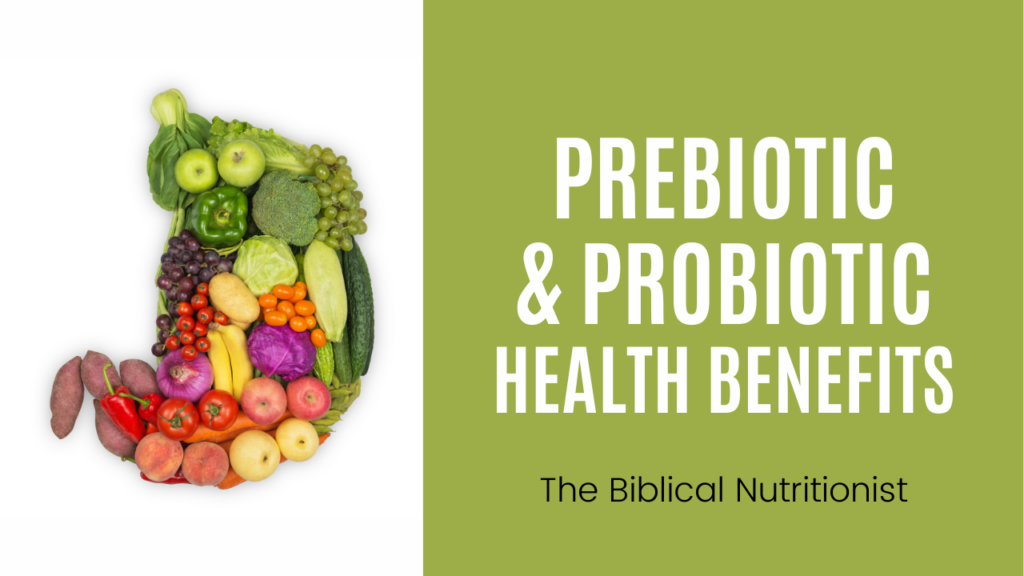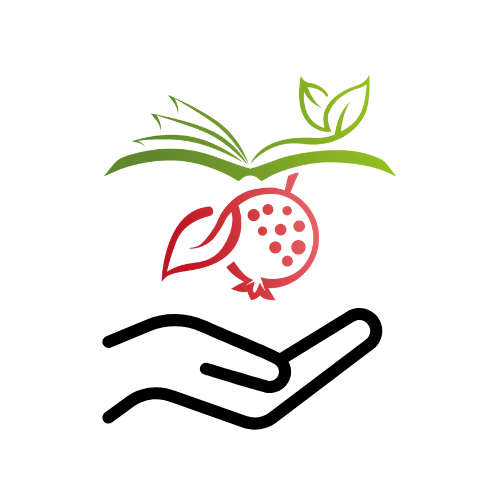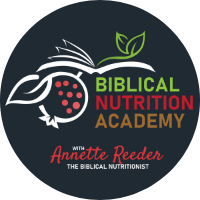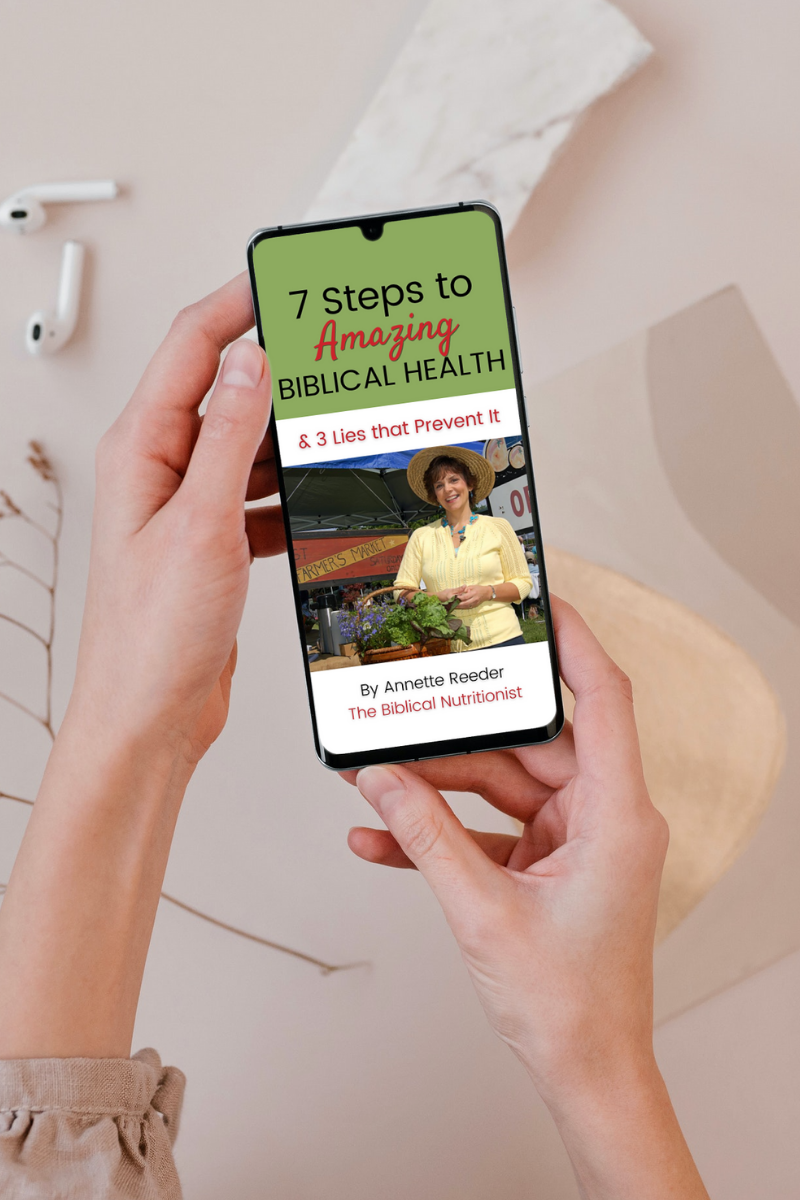
What are prebiotics and probiotics – and why do they matter?
First, let’s talk about the common denominator between these two: Life.
These are just two of the many things your body needs to have a rich life–weight loss, gut health, and mental wellness.
These feed the life living inside you. This life must be harmonious with your own, or else you cannot live in health and happiness.
We achieve this harmony through your probiotics and prebiotics. I’m about to show you exactly how their health benefits may enhance both lives.
The Inside Life
The microbiome. You may have heard of it, or it may sound like a foreign language. Either way, your microbiome is an important aspect of your health that we cannot ignore. The microbiome is like a community of all the living organisms in your digestive tract and even your brain!
Now I know what you must be thinking:
I have living organisms in my body?
The answer is yes! But don’t be afraid. These organisms are here to help you. Beneficial bacteria live in your microbiome and help fight against sickness, along with other jobs you don’t know they’re doing.
These organisms even have DNA that differs from your own. That means they work for you, but they aren’t a part of you. They live in harmony with your body and are vital to your health.
Like good construction workers, they do their jobs and clean up their mess. They work quickly, using vitamin B and K to do their work, and don’t disrupt your daily function.
When this group of organisms is in balance the way God designed, your body is happy. A well-balanced microbiome can mean a longer life, beautiful skin, a sharp memory, and a strong immune system.
Yet, our balance may be off. This is called dysbiosis, and it brings a dark cloud of unhappiness with it: immune system failure, colds, viruses, even eczema, and acne.
So, it’s important to make sure our microbiomes are in balance.
Probiotics and Diet
A steady diet of probiotic-rich foods is paramount to healthy living. In fact, the diet you consume determines the health of your microbiome.
Did you know each person has a unique microbiome? Like a fingerprint, no two people have the same makeup in their microbiome.
It even depends on your location: farmers have a vastly different microbiome than city dwellers. That’s how specific they are to our individual bodies.
Check out my video 7 Powerful Steps to Heal Your Gut that can get your microbiome back to a healthy place again.
But no matter where we are, the food we eat feeds our microbiome. The best way to do this is to get foods that are high in probiotics. Probiotics work to make sure that our microbiome is flourishing and doing its job.
This is essential, especially after taking antibiotics, which will kill the good gut bacteria. But what does it mean to have a healthy gut and beneficial bacteria? I’ll show you:
Health Benefits of Prebiotics and Probiotics
What can prebiotics and probiotics do to your body?
Here are just some of the many benefits that foods rich in pre- and probiotics can do for your health.
1. Help with the metabolism of nutrients
The nutrients in your body need to be delivered to different areas. Probiotics can make sure they get where they need to go.
2. Build immunity
You’ll have less sick days and shorter sick days when you occasionally catch a cold.
3. Help metabolize cholesterol
This can help keep your cholesterol levels low and your heart happy.
4. Increase digestive health
When you have balanced gut bacteria, it can break down foods easier and you’ll have less digestional issues. This means fewer symptoms of irritable bowel syndrome and others.
5. Help the body be stress resilient
If stress really affects your body, having probiotics in your system will help you defend against the physical symptoms of a busy work week.
6. Improve brain function
According to a scientific study featured in the Harvard Health Publishing, probiotics are beneficial to a person’s mind and mood.
Since the gut and the brain are connected, having healthy gut bacteria can actually improve your brain function and your overall mood.
7. Lower inflammation
Inflammation is linked to many diseases and chronic pain, so anything to lower this risk is a safe investment.
8. Reduce homocysteine
High homocysteine levels can cause blood clotting and other heart damage. Take probiotics regularly to avoid increasing the risk of heart issues.
9. Help prevent cancer
Because of its effects on the immune system, probiotics can help your body naturally fight off any invaders–including cancer cells.
10. Help lessen radiation side effects
Radiation leaves a residual similar to fireworks on the 4th of July when the debris is all over the ground. Probiotics help with the day-after cleanup. And with radiation, the cleanup can take up to 7 years.
11. Help prevent candida
Candida is basically a yeast infection, and you don’t want that. Having a healthy microbiome can lessen the chances of getting this type of fungal infection and help starve the yeast.
12. Promote weight loss
Because you’ll need less food to help your body function properly or to fill your hunger, you may experience weight loss.
Check out this video where I discuss the many benefits of prebiotics and probiotics to your body.
Or if you would rather listen to the teachings in this video, here is a podcast episode that covers this topic, as well. Please give it a listen and/or download it to share with your family and friends who may benefit from the lessons I shared here.
Probiotics are an army. We have trillions of good bacteria in our body—but also bad bacteria. When we keep these bacteria in balance, by having a daily dose of probiotics, then they work towards our good health.
When these bacteria are destroyed by medications, processed foods, alcohol, older age, and antibiotics, this allows our body to be vulnerable to disease, viruses, and bacterial infections. Our health improves only when our bodies can prevent and fight invaders.
It is so beautiful to see how God continues to reveal his fingerprints in the design of our body. Probiotics are part of that revelation.
Probiotics for Weight Loss
When our body and health are balanced, we need less food to get that full feeling. The hormone in charge of that feeling is called Leptin. Leptin talks to your appetite and says, “you can stop eating now!”
When this balance is off, you may eat and eat and not get that full feeling. This means weight gain and lingering hunger. Many people suffer from this phenomenon and do not know why. Finally, feel satisfied by getting your microbiome back in check and lose the need for snacking.
Along with the balance it brings to your hormones, probiotics also make it easier for your body to metabolize food. This means easier weight loss and an increase in overall health!
They also help keep your fat content low by not storing as much fat from the foods you eat. Studies show that obese people have different microbial makeup than healthy people. To start your journey to health, it starts with the right microbiome.
Give your body the probiotic foods it needs to be healthy and happy.
Probiotics Food Sources
Foods are the key source for good bacteria. Many of these are fermented foods, which can have a strong taste. But an even stronger effect on your body (for good!).
Hopefully, you have read my book, Treasures of Healthy Living Bible Study in which I teach 3 principles for eating. These 3 principles will always lead you to healthy food choices. These food choices include healthy probiotics!
Here are the key foods for good bacteria to populate:
Yogurt
Get the full-fat yogurts. It may seem counterintuitive, but I promise it’s healthy! The heating process they use to make low-fat yogurts kill most of the good bacteria.
How to buy Yogurt
Look for organic, unsweetened. No flavors added.
I prefer you to add flavoring. This increases the likelihood of the probiotics being active for your body to benefit.
Kefir
This is a fermented milk drink that’s similar to yogurt, but with a thinner consistency. It’s great for your health if you can handle the slightly sour taste.
How to buy Kefir
Similar to yogurt; buy organic and unsweetened.
Kimchi
This Korean dish is salted and fermented vegetables. If you like sauerkraut then this will be a favorite. You can either eat it as it is, or you can add it to another meal like rice.
*NOTE: a serving size of kimchi is 2 tablespoons
How to buy Kimchi
This food is becoming popular in all stores. Here’s my favorite brand of kimchi that I trust and absolutely love!
An alternative to buying kimchi is making your own.
Kimchi Recipe
I found this recipe online at this site, and fell in love with it. I switched it up a bit to make it more biblically healthy for you. You can trust it will still be delicious and healthy for you.
Ingredients:
1 Head of cabbage
¼ cup kosher salt
Water (best if filtered)
6 cloves of grated garlic
1 teaspoon peeled ginger
1 teaspoon sucanat
3 tablespoons water
1 to 5 tablespoons red pepper flakes
8 pinches Korean radish, peeled and cut thin
4 scallions, trimmed and cut into 1-inches
Directions:
- Cut Cabbage: Cut it into 4ths. Remove the cores from each piece. After cutting into 4ths, cut these pieces into 2-inch wide strips.
- Salt: Put cabbage in a bowl and season with salt. Mix the salt into the cabbage until it softens. Cover the cabbage with water. Place a plate on top of cabbage and use a heavy object to weigh it down, so the cabbage is pressed. Let it sit for 1 to 2 hours.
- Rinse: Rise the cabbage off 3 times with cold running water. Let it dry in a colander while you complete the next steps.
- Make the paste: In a bowl, add garlic, ginger, sugar, and water and stir into a paste. Stir in Korean red pepper flakes. Set aside until the cabbage is dry
- Combine: When the cabbage is dry, add it to the spice paste. Add radish and scallions.
- Store: Press the kimchi into a 1-quart jar, making sure that the brine rises to cover the vegetables with 1 inch. Seal the jar and place at room temperature.
- Ferment: Let the jar sit for 1 to 5 days, checking on it once a day and pressing down on the vegetables to help the fermentation process. Taste it every day and place it in the refrigerator when it tastes right to you.
How to Buy a Probiotic Supplement
There are 300 – 1000 bacteria species in the gut but there are millions of strains comprising the billions of bacteria total. Supplements can be an easy way to get these various strains consistently. Look for companies that guarantee the survival of the probiotic throughout your digestive tract.
Knowing the strains of bacteria in the product is also as important and a new way of looking for an excellent product. It is no longer how many names are on the label, but what strain is related to it.
No longer do you need to look in the refrigerated section of the store. This is only necessary for certain strains. It may seem like these are more healthy than other versions, but that’s not necessarily the case. Science has developed to learn about other strains that are room temperature stable.
The best advice I have about buying probiotics is to look for a company you can trust. There are a lot of companies out there trying to capitalize on buzz-products like probiotics, but they don’t provide reliable products. I’ve called companies right there from the grocery store just to see if they’re worth my investment!
Therefore, I only trust this probiotic supplement after doing my research and testing it myself. I experienced significant results from it, and it’s a true value for my money.
Can You Overdose on Probiotics?
An important point about probiotic supplements is that you can’t overdose. You have trillions of bacteria in your system, and they die off quickly and need replacement. A dose of probiotics in supplement form will deliver billions of bacteria while your system has trillions needed daily.
While you should maintain the recommended dosage (usually one or two pills per day), don’t live in fear when you accidentally double-up.
I have been taking pre and probiotics for many years and suggest it with many of my clients, especially those dealing with any digestive or mental issues. When we heal the gut by populating the microbiome, we begin the healing of the entire body. These are the products I use because they help with metabolism, balance gut microflora, improve mental cognition, and help with inflammation markers.
The Dynamic Duo – Prebiotics and Probiotics
We’ve all heard about probiotics — we’ve seen the yogurt commercials. But what about prebiotic foods, and what are their health benefits?
Prebiotics are probiotics’ best friend. Probiotics have a job to do in the body, but they can’t get it done without the support of prebiotics. Basically, prebiotics give probiotics the right “food” that gives them the ability to do their job.
If probiotic foods help digestive health, then it needs prebiotic foods to help get the work done.
Like how construction workers need to take a lunch break to keep building the house, the probiotics need prebiotics before they can get their work done.
There are so many prebiotic-rich foods to add to your diet:
- Green banana
- Asparagus
- Garlic
- Leek/onions
- Ginger
- Jerusalem artichoke
- Jicama
What’s the Link Between Stress and Lack of Prebiotics and Probiotics?
I know I don’t have to tell you about the toll stress can have on a body. You’ve experienced it. Many of us feel the ramifications of stress in our digestive tract and feel a decrease in digestive health. Emotions actually influence the gut bacteria.
You can check out my blog about herbs to help you manage your stress. These herbs can help you overcome your anxiety.
However, if you haven’t tried those herbs yet, your digestive system might be suffering. It’s in times of stress that our gut needs to be armed with pre- and probiotics to overcome the difficult season. They can help our bodies stay balanced when everything else in our world might feel uneasy.
If you’re having infrequent bowel movements, or too frequent and painful, this may be a sign that stress is affecting your digestive system. Take a prebiotic and probiotic daily to get your system back into a healthy rhythm.
These tips can help you and your family members get through a stressful season.
- Lots of fiber – Raspberries, green peas, lentils, and whole grains are just a few great sources (check out my blog about fiber to learn more about it’s benefits)
- Meditate on God’s word – The Lord promises to give us peace, focus on what He promises in the scripture and remind yourself of His goodness.
- Breathe – Science shows that breathing can help tell your mind to calm down. By breathing slowly, your mind thinks that you’re relaxed. In turn, it starts to actually relax.
This can help your body get back to balance.
What are Phytobiotics?
So, we’ve heard about pre- and pro-, but what about ‘Phyto’? What are phytobiotics? What are their health benefits?
These are antioxidants that are found in specific foods that increase the performance of prebiotics and probiotics. Like a helpful little boost to help them be the most effective they can be.
These foods help the connection and symbiosis between the brain and the gut.
Science also shows that phytobiotics help immune system health and strengthen human and animal performance.
To get a healthy dose of phytobiotics, start including these phytobiotic-rich foods in your diet, which are easily accessible and delicious!
- Dark chocolate – not your milk chocolate, I prefer you add 80% cacao or higher
- Grapes – organic and in season
- Apples – organic, one a day is perfect
- Berries – organic if possible
Check out some probiotic-rich foods to help get your body back to the way God designed it. Don’t let a stressful season or unhealthy eating habits make you function at a lower capacity.
You never know when the next virus will generate. Unlock the health benefits of pre-, pro-, and even phyto- biotics now! Keep your body armed so you can live knowing you are doing your best and let God take care of the rest.





